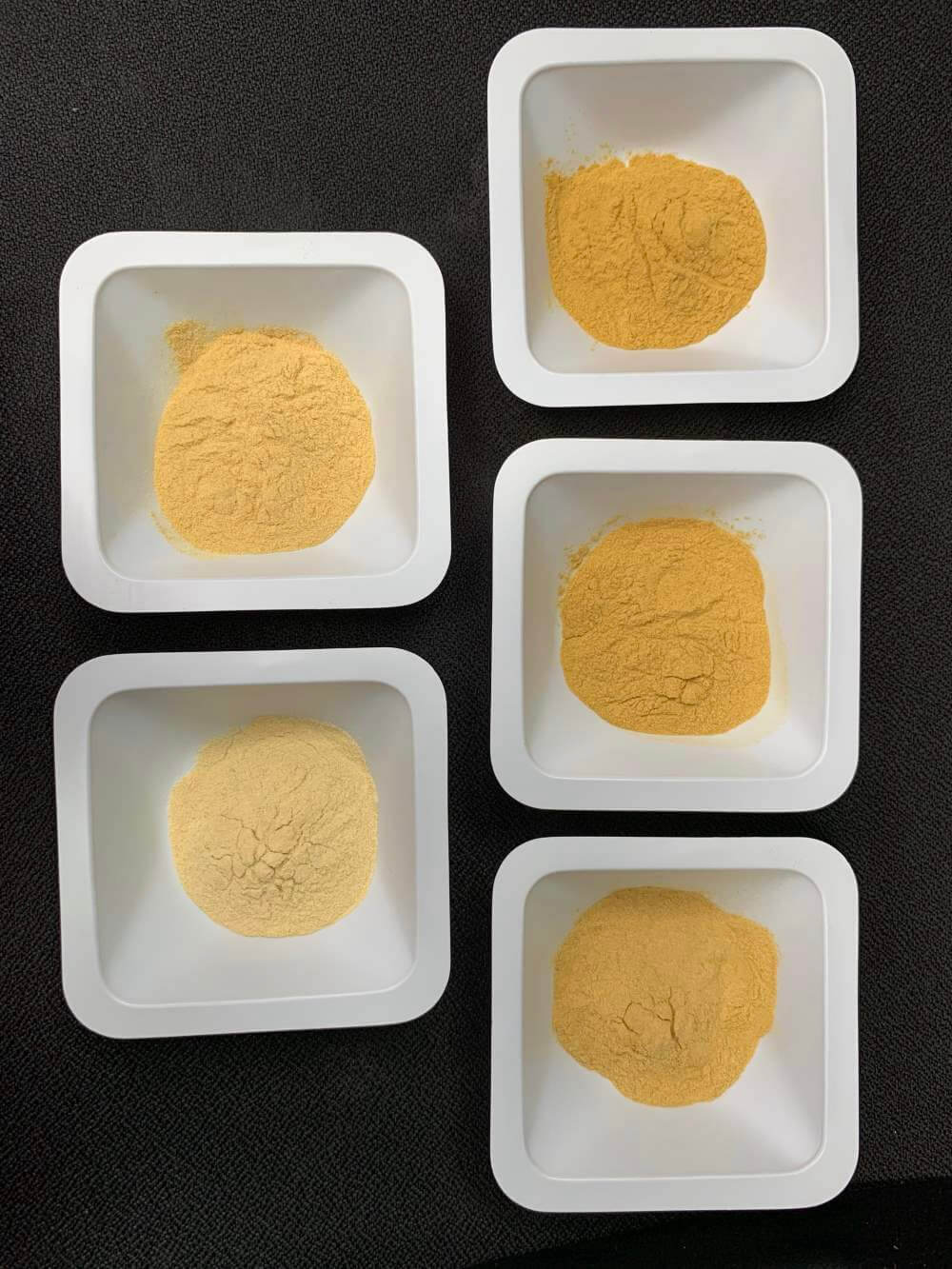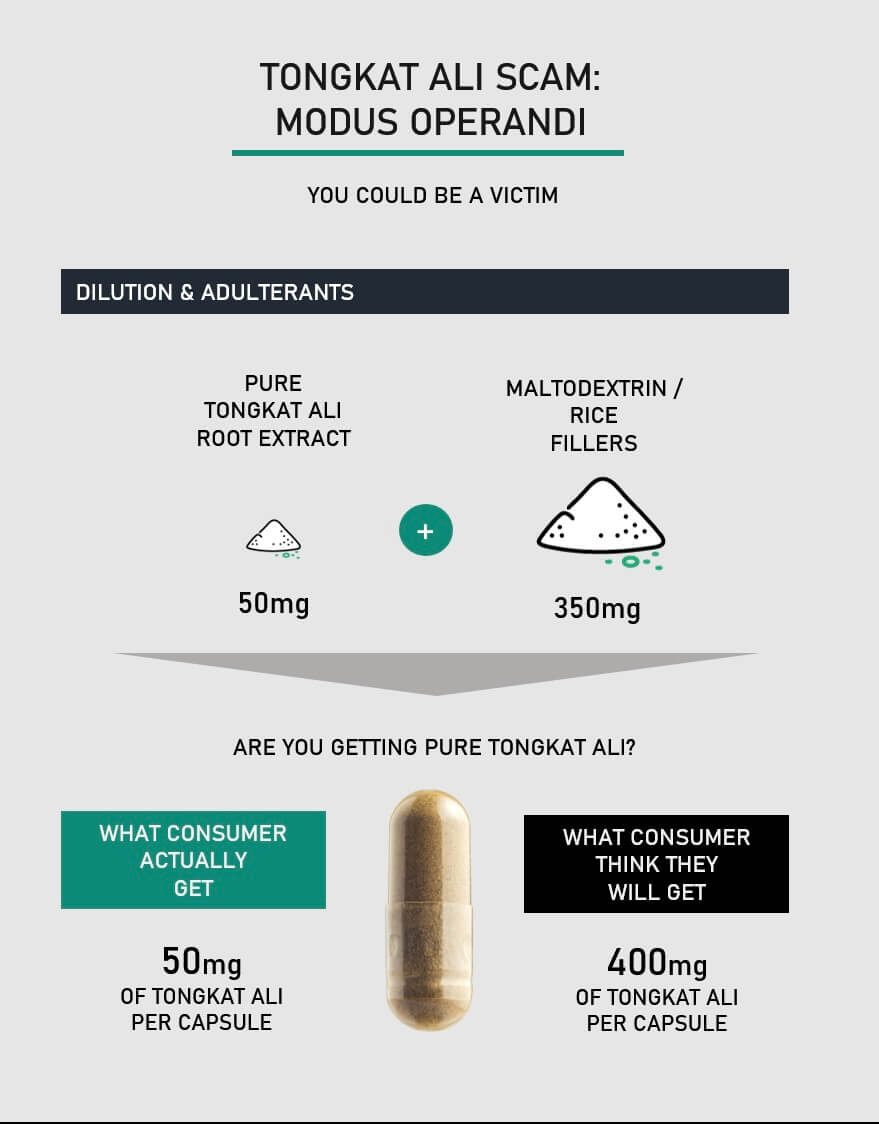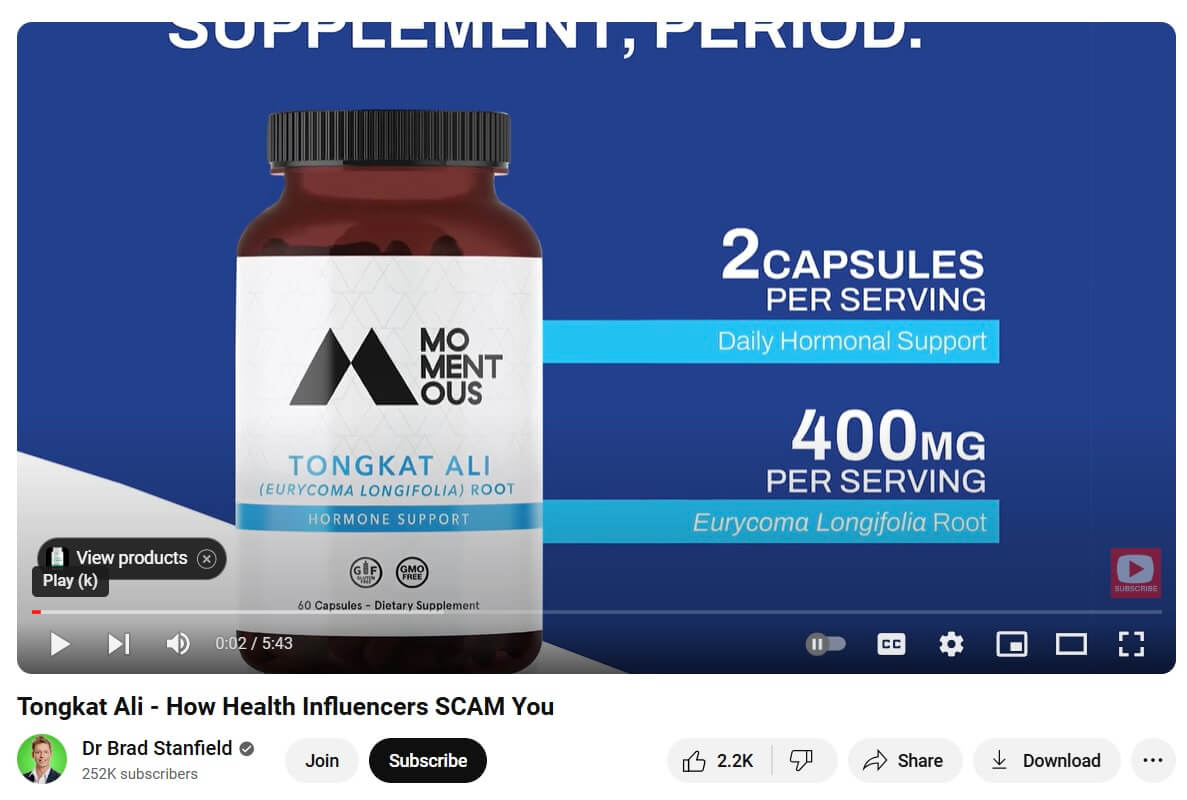
Title: Tongkat Ali Scam Exposed: Are You a Victim? Here’s How Australians and New Zealanders Can Avoid Being Cheated
Share
The rising popularity of Tongkat Ali, a natural supplement renowned for boosting testosterone, enhancing libido, and improving overall vitality, has unfortunately coincided with a surge in related scams. Australian and New Zealand consumers, driven by a growing interest in herbal and natural remedies, are increasingly becoming prime targets for these fraudulent schemes. This article seeks to uncover the rampant deception in the Tongkat Ali industry and offer essential guidance to Australians and New Zealanders on avoiding these misleading products.
The Growing Problem: Tongkat Ali Scams in Australia and New Zealand
As the demand for natural health supplements rises in Australia and New Zealand, the number of Tongkat Ali brands on shelves and online platforms has expanded significantly. Sadly, this has made the market a hotspot for scammers. Many products boast the benefits of authentic Tongkat Ali but contain adulterants, insignificant amounts of the actual root, or are simply ineffective due to substandard manufacturing practices.
A key concern is the mass production of Tongkat Ali in regions like China, where it is often mixed with low-quality ingredients or fillers. Many of these products infiltrate the Australian and New Zealand markets, where regulatory bodies such as Australia’s Therapeutic Goods Administration (TGA) work diligently to ensure supplements meet safety and efficacy standards. Yet, despite their efforts, some scams manage to slip through, requiring consumers to remain vigilant.
With international markets, like the United States, tightening their regulations, Australia and New Zealand have become lucrative targets for fraudulent sellers. Therefore, understanding these scams and learning how to avoid them is crucial for consumers in both countries.
Is Tongkat Ali a Scam?
Tongkat Ali’s rising fame has given birth to a fair share of skepticism, particularly when consumers encounter products that fail to deliver promised health benefits. This doubt is prevalent among Australian and New Zealand consumers, who expect high-quality health products.
Some experts suggest that Tongkat Ali may be viewed as a scam if consumers don’t experience noticeable health improvements after consistent use. Generally, after six weeks of daily intake, users should see enhanced energy levels, improved libido, stamina, and mood. If these effects are absent, it may be due to adulterated or ineffective products.
In Australia and New Zealand, this problem is worsened by the presence of low-quality Tongkat Ali supplements. Many products are diluted with fillers or sourced from questionable suppliers, making it difficult for consumers to distinguish between legitimate products and scams. Thus, whether Tongkat Ali is deemed a scam largely depends on the quality of the product consumed.
Our investigations reveal that many Tongkat Ali supplements sold in Australia and New Zealand contain subpar levels of the bioactive compounds responsible for the herb’s benefits. These essential compounds—eurycomanone, eurypeptides, and glycosaponin—are often missing or present in negligible amounts, leading to ineffective results and leaving consumers frustrated and disillusioned.
How to Avoid Being Scammed in Australia and New Zealand
For Australians and New Zealanders looking to purchase Tongkat Ali, avoiding scams requires attention to detail and some research. Here are four crucial tips to ensure you're getting a legitimate product:
-
Choose reputable brands: Always buy from well-known and trusted brands in the supplement industry. Reputable brands offer high-quality root extracts, often in standardized hot-water extracts, ensuring the highest levels of bioactive compounds. Malaysian brands are particularly noted for their quality due to Malaysia’s strict regulations and manufacturing standards.
-
Buy from reliable sources: Many Australians and New Zealanders unknowingly purchase Tongkat Ali from online marketplaces that ship products from less-regulated countries. Instead, opt for direct purchases from established suppliers who provide clear sourcing and manufacturing information.
-
Check the label for bioactive ingredients: Authentic Tongkat Ali will list its bioactive components, such as eurycomanone, eurypeptides, and glycosaponin, with specified percentages. Look for products with at least 0.5%–1.5% eurycomanone, 20%–30% eurypeptides, and 20%–40% glycosaponin. If these ingredients are missing or present in small quantities, the product is unlikely to be effective.
-
Opt for powder extracts over capsules: Tongkat Ali in powdered form is less likely to contain fillers or be adulterated compared to capsule-based supplements, which are often packed with additives like maltodextrin. When buying powdered Tongkat Ali, ensure it is 100% pure root extract.
Adulteration and Low-Quality Ingredients: A Growing Concern
One of the most common scams in the Tongkat Ali market, especially in Australia and New Zealand, is the adulteration of the root extract. Products advertised as pure Tongkat Ali often contain cheap fillers like maltodextrin and other starches, reducing the supplement’s potency and effectiveness.
This adulteration not only makes the supplement ineffective but can also pose health risks, especially if consumed over extended periods. Consumers in Australia and New Zealand, known for their focus on health and wellness, are particularly vulnerable to these scams, as many believe they are purchasing high-quality products.
Brands like AKARALI are working to address this problem by ensuring their products are third-party tested and meet the highest quality standards. AKARALI’s dedication to purity and transparency makes it a trusted choice for consumers in Australia and New Zealand looking for reliable Tongkat Ali supplements.
Health Influencers and Misleading Claims
A significant factor contributing to the rise of Tongkat Ali scams in Australia and New Zealand is the role of health influencers. These influencers frequently promote Tongkat Ali products with exaggerated claims, often presenting them as miracle solutions for low testosterone, fatigue, and libido issues.
While Tongkat Ali can help support testosterone levels and offer other health benefits, many influencers endorse low-quality products that lack adequate levels of bioactive compounds. Consequently, these products fail to deliver on the promises, leaving consumers in Australia and New Zealand disappointed.

According to Dr. Brad Stanfield, some of these claims by celebrity doctors, such as Dr. Andrew Huberman, are not supported by strong scientific evidence. However, a meta-analysis suggests that Tongkat Ali health benefits are derived from standardized hot-water extracts, like Physta®, which show consistent testosterone gains due to the standardized bioactive ingredients.
Meanwhile, Dr. Li Cheng from California emphasizes, “Many influencers push Tongkat Ali supplements without fully understanding the science or clinical data behind them. This leads to misinformation and misleads consumers into buying ineffective products.”
Lack of Scientific Backing
Beyond adulteration, some Tongkat Ali products simply lack the scientific validation to support the health claims on their labels. Products that aren’t clinically tested are less likely to deliver the promised benefits, such as testosterone boosts, increased strength, or improved libido. Without proper testing, consumers may unknowingly purchase subpar products and fall victim to global Tongkat Ali scams.
For example, Alexandre Valente of Vegan Foundry tested Solaray Tongkat Ali 400mg for two weeks but noticed no significant energy boost, which he attributed to poor extract quality. Similarly, British healthcare professional Dr. Chris reported a reduction in testosterone after 40 days of taking Solaray Tongkat Ali, revealing that it contained only 0.1% eurycomanone, far below the recommended threshold.
Are You Buying the Real Deal?
Tongkat Ali is not inherently a scam, as long as you’re buying an authentic, high-quality product. Real Tongkat Ali supplements, made from pure, standardized root extracts, can be expensive but should work as intended when paired with exercise, boosting testosterone, energy, and libido. Genuine products typically provide noticeable energy boosts within 24 to 72 hours of use, regardless of age, weight, or health status, due to the high bioavailability of their active compounds.
To ensure authenticity, opt for supplements that have undergone third-party testing or clinical trials to confirm their efficacy. This helps reduce the risk of falling victim to scams from unscrupulous manufacturers.
Spotting a Tongkat Ali Scam in Australia and New Zealand
To avoid becoming a victim of a Tongkat Ali scam, Australians and New Zealanders should watch out for the following red flags:
-
No third-party testing: Reputable Tongkat Ali products are third-party tested for purity and potency. Lack of such testing is a strong indicator of a potential scam.
-
Unrealistic health claims: Products promising rapid or miraculous results are likely to be fraudulent. Tongkat Ali works gradually, and any supplement claiming instant effects should be viewed with suspicion.
-
Incomplete or vague ingredient labels: Always read the label. If bioactive compounds are missing or there’s an excessive amount of fillers, avoid the product.
-
Lack of transparency in sourcing: Trusted brands are clear about their sourcing and manufacturing processes. Avoid products that don’t disclose these details.
Conclusion: Staying Safe in the Australian and New Zealand Markets
The Tongkat Ali supplement market in Australia and New Zealand is ripe for scams due to the high global demand for natural health products. However, by staying informed and following the tips in this article, consumers can protect themselves from fraudulent products.
Look for reputable brands like AKARALI that prioritize transparency, quality, and consumer safety. With its commitment to producing pure Tongkat Ali root extracts, AKARALI stands out as a reliable choice in a market crowded with scams.
Ultimately, Tongkat Ali offers real health benefits—but only when sourced, produced, and consumed responsibly. By verifying product authenticity and avoiding exaggerated claims, Australians and New Zealanders can enjoy the benefits of this powerful natural supplement without falling prey to scams.
